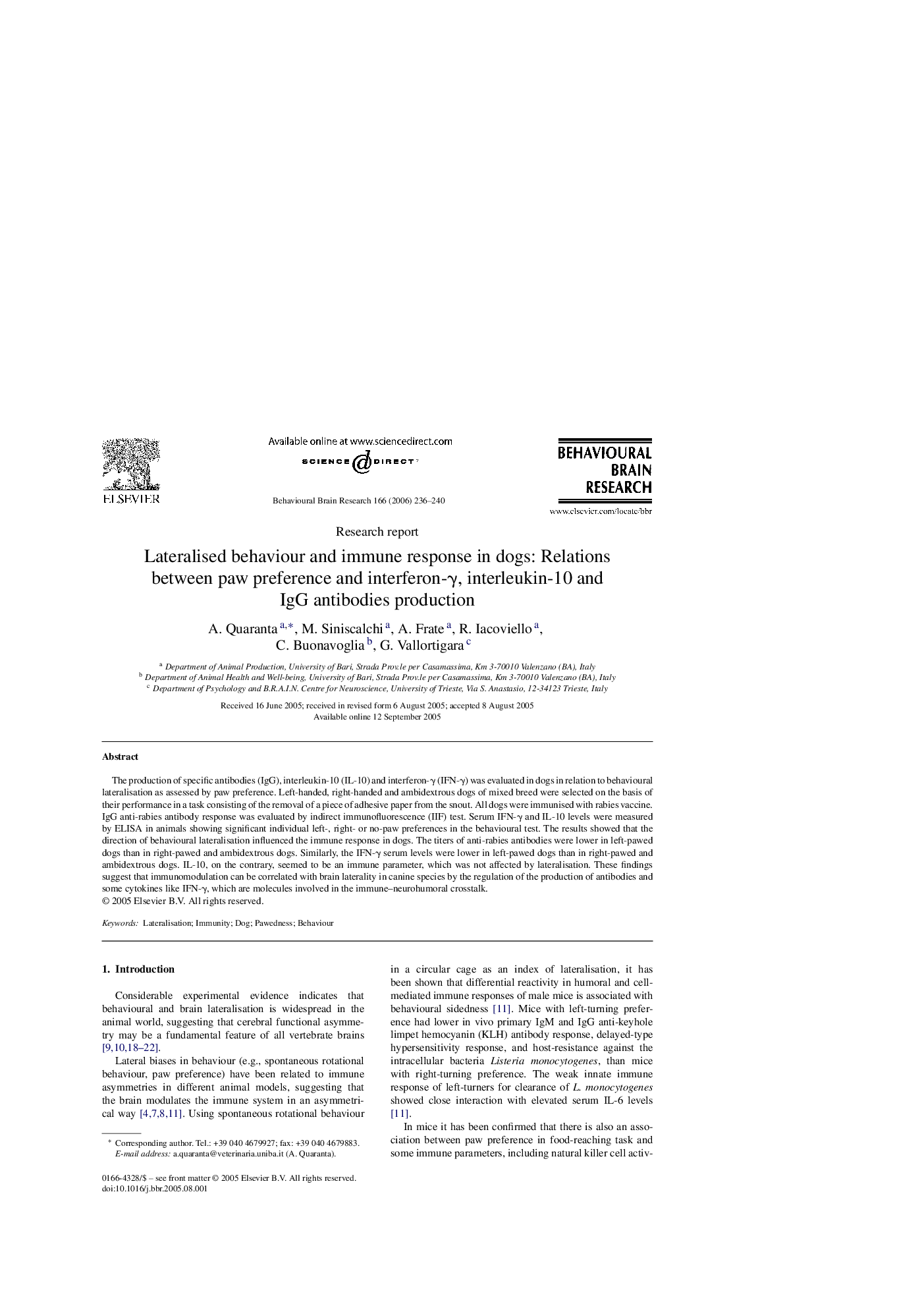| کد مقاله | کد نشریه | سال انتشار | مقاله انگلیسی | نسخه تمام متن |
|---|---|---|---|---|
| 4316222 | 1290114 | 2006 | 5 صفحه PDF | دانلود رایگان |

The production of specific antibodies (IgG), interleukin-10 (IL-10) and interferon-γ (IFN-γ) was evaluated in dogs in relation to behavioural lateralisation as assessed by paw preference. Left-handed, right-handed and ambidextrous dogs of mixed breed were selected on the basis of their performance in a task consisting of the removal of a piece of adhesive paper from the snout. All dogs were immunised with rabies vaccine. IgG anti-rabies antibody response was evaluated by indirect immunofluorescence (IIF) test. Serum IFN-γ and IL-10 levels were measured by ELISA in animals showing significant individual left-, right- or no-paw preferences in the behavioural test. The results showed that the direction of behavioural lateralisation influenced the immune response in dogs. The titers of anti-rabies antibodies were lower in left-pawed dogs than in right-pawed and ambidextrous dogs. Similarly, the IFN-γ serum levels were lower in left-pawed dogs than in right-pawed and ambidextrous dogs. IL-10, on the contrary, seemed to be an immune parameter, which was not affected by lateralisation. These findings suggest that immunomodulation can be correlated with brain laterality in canine species by the regulation of the production of antibodies and some cytokines like IFN-γ, which are molecules involved in the immune–neurohumoral crosstalk.
Journal: Behavioural Brain Research - Volume 166, Issue 2, 30 January 2006, Pages 236–240